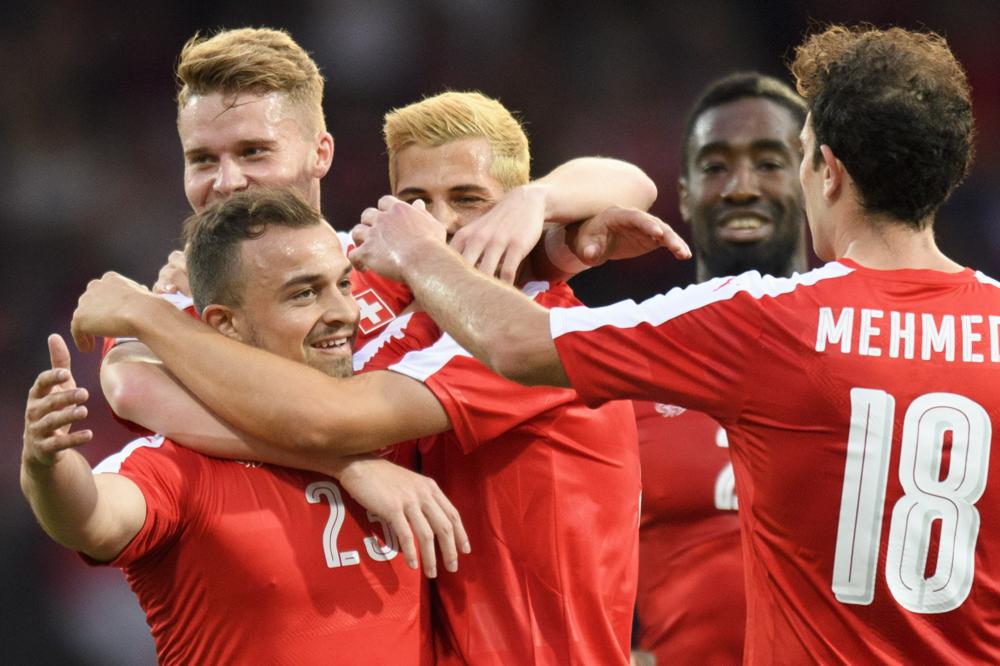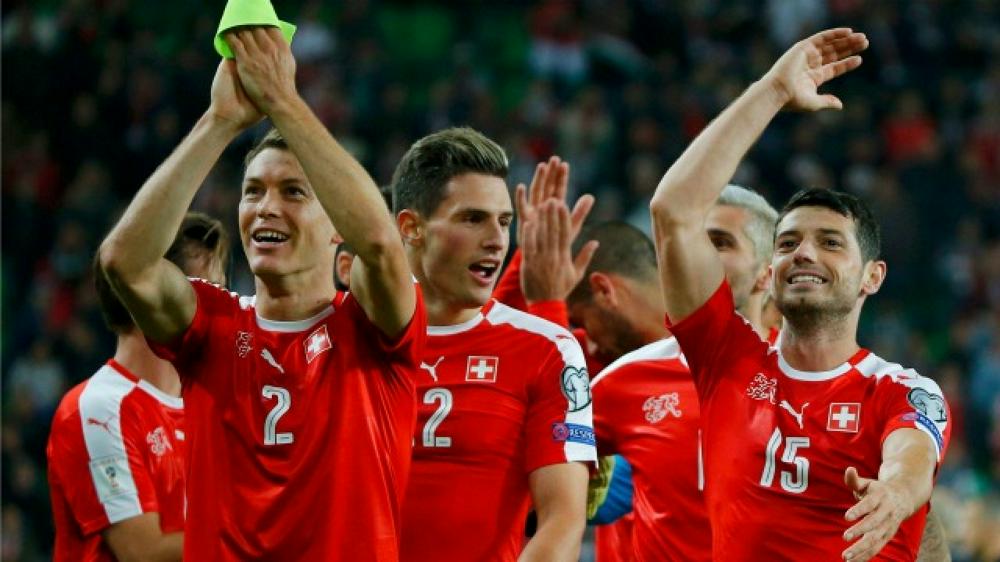Switzerland is known as a multilingual country as it is divided into German-, French- and Italian-speaking parts. However, it seems that most players of their national team have foreign background and other first languages, so they make up a truly exciting ethnic mix.

Mixed ancestry
In terms of multiculturalism, the Swiss team can compete only with France - even Belgium or Germany are not even close. About a third of the country’s population has foreign ancestry, but the percentage is much higher in football, and the national team is a perfect example.
Eight players of the World Cup squad have even been born outside Switzerland. Three of them, the goalkeeper Yvon Mvogo, the defender Francois Moubandje and the forward Breel Embolo, come from Cameroon. Another defender Johan Djourou was born in Ivory Coast, and the midfielder Gelson Fernandes in Cape Verde. Three more footballers are from the Balkans - Valon Behrami and Xherdan Shaqiri from Kosovo, and Blerim Dzemaili from Macedonia.
Behrami, Shaqiri and Dzemaili are all ethnic Albanians, whose families relocated to Switzerland already after the future players were born. The key midfielder Granit Xhaka is also an Albanian - his brother Taulant actually plays for the Albania national team - but he was born in 1992 in Basel, where his family had moved from Kosovo.
Three of four Swiss strikers who are going to the World Cup also have Balkan roots, although none of them is Albanian. Haris Seferovic, Mario Gavranovic and Josip Drmic were all born in the former Yugoslavia before their families fled from the Balkans in the late 80s-early 90-s. While Seferovic is Bosnian, Drmic has Croatian background, and Gavranovic sort of combines both - his parents are Bosnian Croats.
Some Swiss internationals are even of mixed heritage. The defender Manuel Akandji has a Swiss mother, but his father is Nigerian. Another defender Ricardo Rodrigues has a Spanish father and a Chilean mother. Denis Zakaria has his ancestry in South Sudan and the Democratic Republic of Congo, while Edimilson Fernandes - in Portugal and Cape Verde.
As we can see, about two thirds of the team are of foreign background. Notably most of them play in attack or midfield, while ethnic Swiss footballers are usually defenders and goalkeepers. No doubt, the Swiss football has benefitted from the influx of players of various background, who have given the national team more flair and creativity. Moreover, such a multicultural side can help to unify the nation and to fight against anti-immigrant sentiments of some people.

Feeling of stability
After all, while Switzerland are definitely not football heavyweights, they have been regularly participating in the major tournaments in the new century. Since 2004, The Nati only missed EURO 2012, otherwise featuring at every World Cup or European Championship. Although the results were not superb, as the team either could not progress from the group or stumbled in the first knock-out round, the nation got a feeling of stability.
Actually, the current national coach is also a foreigner - Vladimir Petkovic comes from Bosnia, but has lived for multiple years in Switzerland where he played for some clubs, and then worked as a coach. Under Petrovic, the Nati had a solid qualifying campaign, although following nine straight wins, it was quite frustrating for them to lose against Portugal in the last match, finish second on goal difference and miss out on automatic qualification. But in the play-offs, the Swiss beat Northern Ireland (1:0, 0:0). Who will now say that they did not deserve a trip to Russia?
At the World Cup, they were drawn into the competitive group with Brazil, Serbia and Costa-Rica, and if the Nati progress from it, they are likely to face Germany in the first knock-out round. So on paper, it looks like Switzerland are going to follow their usual path and are doomed be eliminated either after the first round or in the Last 16. But of course the team harbour hopes to reach further.
Comments